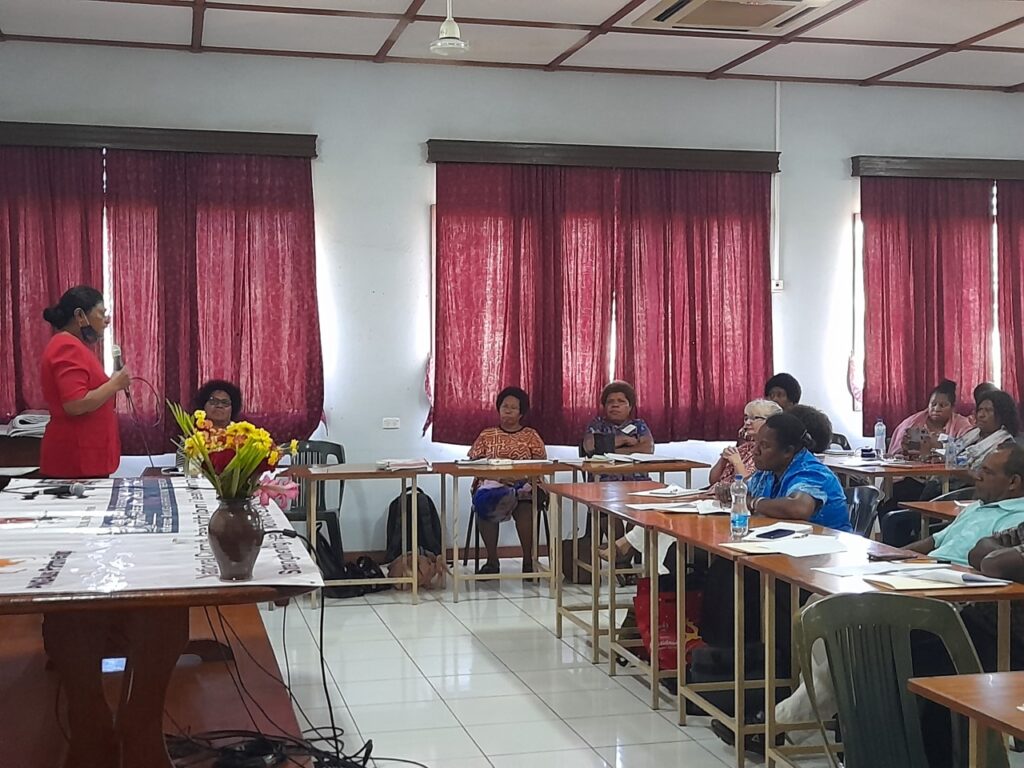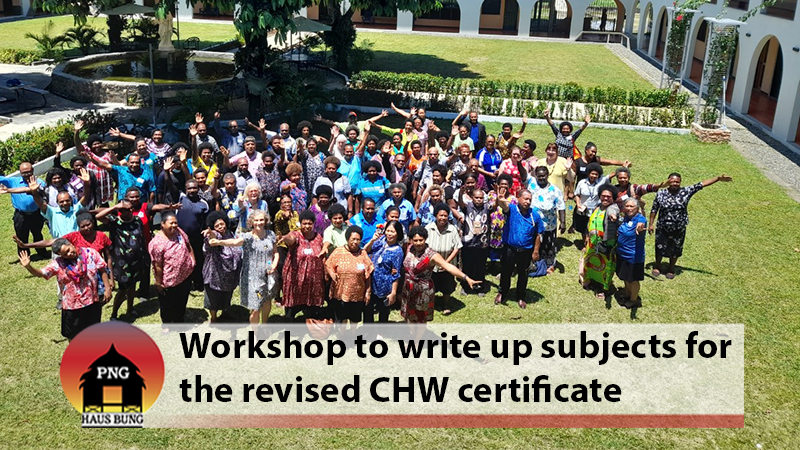A revision of curriculums being taught at the nursing schools and Community Health Worker (CHW) schools in the country was undertaken last week in Port Moresby.
ABOUT 100 educators and clinicians from all the nursing and CHW schools throughout the country worked together to write up subjects for the revised CHW certificate and Diploma General Nursing Curriculums.
Led by the National Department of Health (NDOH), organised under the Strengthen Health Workforce Education
in Papua New Guinea and funded by WHO and the Australian Government (DFAT), the goal for the workshop was to develop a draft of the curriculums.

Since the World Bank Report on the health workforce crisis in PNG came out in 2011, a total of 12 new Community Health Worker schools have been opened by the private, government and Church-run health services, increasing the total CHW institutes to 19 so far.
There were also eight new nursing schools that came up following that report, increasing the total number of nursing colleges to 16 so far.
National Department of Health Training Advisor, Ms Mary Kililo, said the Government through the National Department of Health and relevant agencies have responded to the call to address the critical shortage of health workforce including producing an increased number of graduates every year from the nursing colleges and CWH schools.
“ We are now trying to ensure that we are not only addressing the quantity of health worker graduates, but also the quality of graduates,’’ said Ms. Kililo.
Ms. Kililo said a review and gap analysis was conducted by the WHO Collaborating Centre in Nursing and Midwifery University Technology Sydney (UTS) on key health priority areas and existing curriculums being taught at CHW and nursing institutes in 2021.
In addition, the NDoH conducted an assessment on the impact of these curriculums, the gaps identified from these two reports are now being used in the new curriculums.
She said the revision is also overdue as there was no review done in the last two National Health Plans (2001 – 2010, 2010 – 2021).
Director of the WHO Collaborating Centre in Nursing and Midwifery University Technology Sydney, Dr Michele Rumsey said the Strengthen Health Workforce Education in Papua New Guinea is a collaboration and partnership between WHO, Australian Government (DFAT), Department of Higher Education, Research Science and Technology (DHERST) and the National Department of Health, Medical Board, Nursing Council, Nursing and CHW Associations, clinicians, Provincial Health Authorities and nursing and CHW institutes.
 She said how important it is to be working with all partners on this program and now the focus is on strengthening the quality of nursing and community health worker education.
She said how important it is to be working with all partners on this program and now the focus is on strengthening the quality of nursing and community health worker education.
Dr Rumsey said despite the increase in the number of graduates coming out from the nursing and CHW institutes since 2012, there has been limited support for educators or revision of the curriculums taught.
“This workforce are critical as they are on the frontline of all areas of health care in the country whether in remote, rural or urban centres, and they makeup 72 per cent of the national regulated workforce.’’
She said the new curriculums will go through an extensive accreditation process for delivery in 2024. Alongside this process a pathway program to upgrade current educator and senior clinician’s qualifications will take place.
The curriculums are being developed with an evidence-based approach linked to the National Health Plan 2021-2030 to address the health needs of the country.

